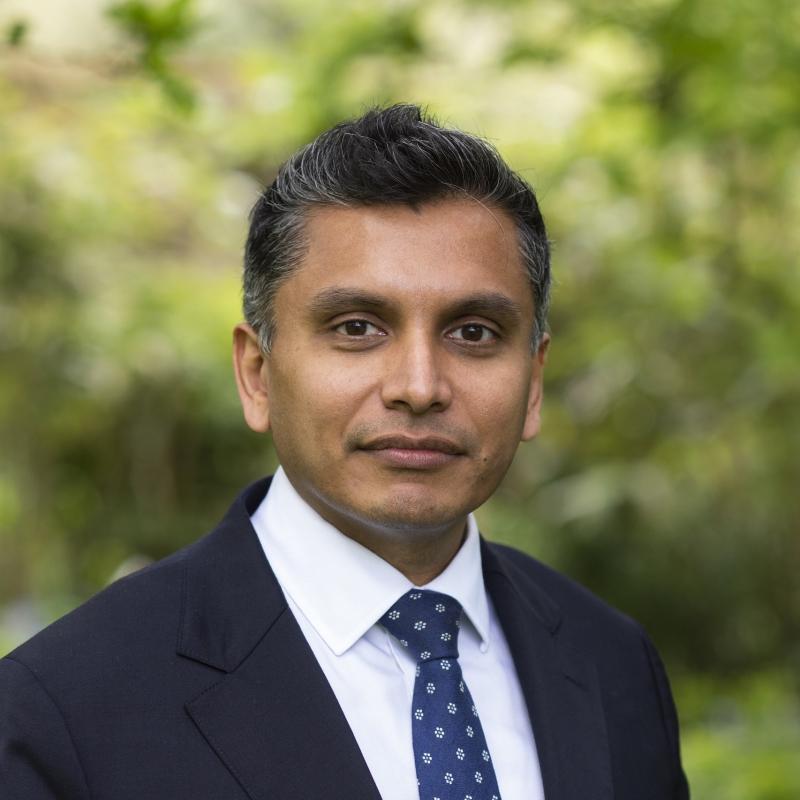Faculty spotlight: UK election insights
Experts working on issues from climate change to productivity give their thoughts on the key challenges and opportunities for the next Government.

On housing

“The next government faces cracks in our housing infrastructure that can’t just be papered over. They range from the chronic under-supply of new dwellings to the growing shortage of affordable rental homes.
Further issues for the new government in-tray include the growth in family homelessness and rough sleeping, poor energy efficiency at the lower end of the private housing market and excessive service charges and ground rents in long leasehold apartments.”
-- Peter Kemp, Professor of Public Policy and expert on housing in advanced economies, former special advisor to a House of Commons Select Committee’s Inquiry into the Local Housing Allowance
On climate and our international reputation

“On climate change, the UK needs stability from a government determined to create the certainty that communities and businesses need to chart the pathways to net zero and greater resilience.
Governing requires less time engaging with performative statements and more time on the hard yards of ensuring that resources are mobilised for domestic clean energy infrastructure and finding creative ways to meet our international obligations. With this seriousness, the new government will help reposition the UK as pragmatic and reliable again.”
-- Rachel Kyte, Professor of Practice in Climate Policy and former special representative of the UN secretary-general, the World Bank Group vice president and special envoy for climate change
On tactical voting and democracy

“My hope is that both parties and voters are learning about the idea of tactical voting. Many citizens across the world who feel frustrated with the state of politics today vote for fringe movements or individuals that have little realistic chance of taking office. In a context like the UK, characterised by strong political parties and the first past the post voting system, only one or two parties are realistically competing for a particular parliamentary constituency.
Tactical voting matters, because it means we are likely to get a government that more genuinely reflects the wishes of its citizens. This election, not only are parties learning and co-ordinating to effectively win seats where they can, but voters are learning too, as a recent poll showed that 1 in 5 British voters are voting on July 4th for a party that is not their top choice, but is their top choice among parties most likely to win in their constituency.”
-- Maya Tudor, Associate Professor, expert on democracy and nationalism and former Special Assistant to Chief Economist at the World Bank
On defence spending

“Russia’s invasion of Ukraine in 2022 made clear that we now live in a much more fragile world. Rival global powers have significantly different views about the rules that should govern international order, and my hope for the UK election is that foreign and defence policy gets the attention that it needs—both during the campaign, and most importantly in policy focus and budget afterwards.”
-- Dr Thomas Simpson, former officer with the Royal Marine Commandos and Associate Professor in Philosophy and Public Policy
On balancing productivity with climate action

“Many in the UK are struggling financially, and there will likely be a strong political instinct, post-election, to expand welfare programs to support these individuals. But the harsh reality is that the UK has already built a welfare state that it cannot afford at current levels of productivity.
What is perhaps most needed of a government post-election is nuance and temperance. No grand ideas, no bold transformations – but, rather, carefully thought-through micro interventions (driven bottom-up through active listening) in places where they are most needed to stem suffering and to boost productivity. For instance, on global issues like climate change, the UK government has bitten off more than it can chew by falling for its own bombastic rhetoric, and it needs to scale back its ambition, so as to stimulate economic growth while also continuing to make (admittedly more modest) progress toward decarbonisation.
If I could put one message on the (next) PM’s desk, it would be the following: There are no easy answers to the questions before you – if there seem to be, then you are likely asking the wrong questions.”
-- Karthik Ramanna, Professor of Business and Public Policy
On health policies

“My hope is that party manifestos are truly and widely interrogated, so that voters understand the real trade-offs around the promises made to them.
At the Lemann Foundation Programme, we’ve been working hard on a report for the G20 about coordination and equity in public health. Hence, my big hope for the next government is that the NHS gets the attention it needs and deserves.”
-- Anna Petherick, Associate Professor of Public Policy and Director of the Lemann Foundation Programme, previously co-Principal Investigator of the Oxford COVID-19 Government Response Tracker (OxCGRT)
On international development

“In the last 5 years or so, the UK’s global leadership position on matters of international development, built up over almost three decades, has largely been destroyed through ill-advised measures, including the abolition of DFID, and rapid and brutal cuts to budgets.
While things had improved inside FCDO on global development issues, there is a lot of work to be done to restore the UK’s credibility on international development issues, internally inside FCDO, externally in the UK and not least externally towards developing countries.”
-- Stefan Dercon, Professor of Economic Policy and Former Chief Economist of the Department of International Development and Development Policy Advisor to successive Foreign Secretaries at the UK’s Foreign, Commonwealth and Development Office





